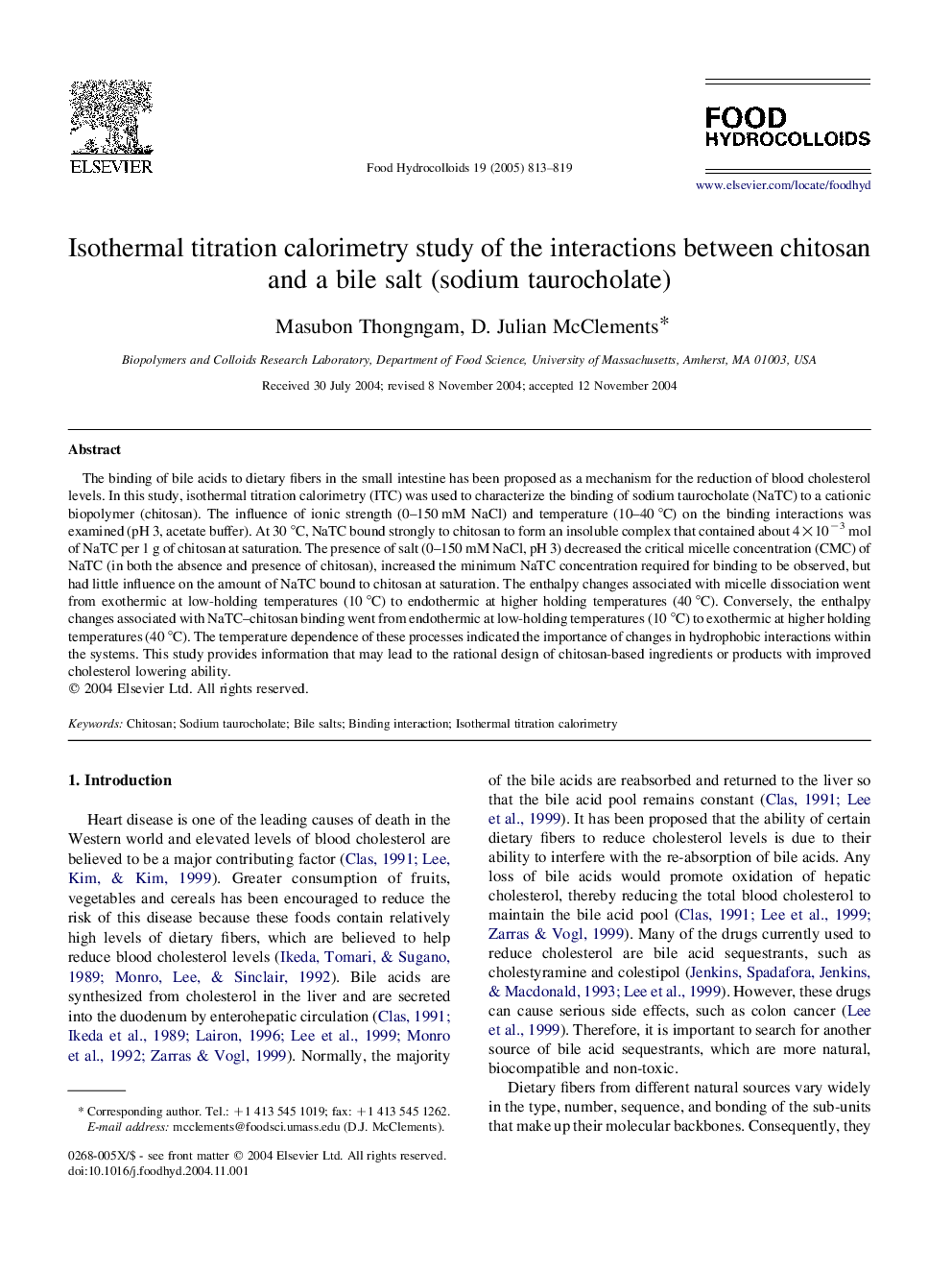| Article ID | Journal | Published Year | Pages | File Type |
|---|---|---|---|---|
| 10375960 | Food Hydrocolloids | 2005 | 7 Pages |
Abstract
The binding of bile acids to dietary fibers in the small intestine has been proposed as a mechanism for the reduction of blood cholesterol levels. In this study, isothermal titration calorimetry (ITC) was used to characterize the binding of sodium taurocholate (NaTC) to a cationic biopolymer (chitosan). The influence of ionic strength (0-150 mM NaCl) and temperature (10-40 °C) on the binding interactions was examined (pH 3, acetate buffer). At 30 °C, NaTC bound strongly to chitosan to form an insoluble complex that contained about 4Ã10â3 mol of NaTC per 1 g of chitosan at saturation. The presence of salt (0-150 mM NaCl, pH 3) decreased the critical micelle concentration (CMC) of NaTC (in both the absence and presence of chitosan), increased the minimum NaTC concentration required for binding to be observed, but had little influence on the amount of NaTC bound to chitosan at saturation. The enthalpy changes associated with micelle dissociation went from exothermic at low-holding temperatures (10 °C) to endothermic at higher holding temperatures (40 °C). Conversely, the enthalpy changes associated with NaTC-chitosan binding went from endothermic at low-holding temperatures (10 °C) to exothermic at higher holding temperatures (40 °C). The temperature dependence of these processes indicated the importance of changes in hydrophobic interactions within the systems. This study provides information that may lead to the rational design of chitosan-based ingredients or products with improved cholesterol lowering ability.
Related Topics
Physical Sciences and Engineering
Chemical Engineering
Colloid and Surface Chemistry
Authors
Masubon Thongngam, D. Julian McClements,
